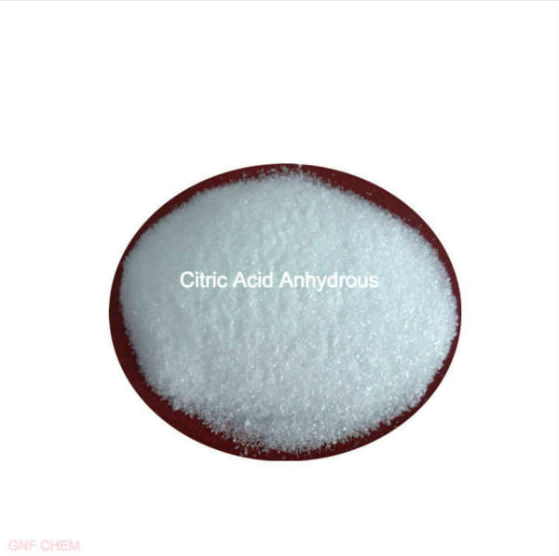-
Make a Call : +86 551 63500087
-
Get A Estimate : sales@gnfchem.com
What Are You Looking For?
What Are You Looking For?
Make a Call : +86 551 63500087
Get A Estimate : sales@gnfchem.com

What are the applications of citric acid anhydrous in the food industry?
Sep 30, 2025In terms of flavor adjustment, citric acid anhydrous is the "sweet-acid balance master" in the food industry. Its sourness is pure and mild, without any irritating odors, and it can precisely simulate the natural sourness of fruits such as lemons and oranges. It is widely used in various foods: carbonated beverages (such as lemon-flavored sparkling water) rely on it to give a refreshing sour taste and neutralize the sweetness of sweeteners; in juices (orange juice, apple juice), it can restore the original flavor of the fruits and mask the astringent taste caused by processing; in candies (lemon hard candies, QQ soft candies) and dried fruits (frozen-dried strawberries, mango dried fruits), it helps create a distinctly layered sour-sweet taste, and even can work synergistically with aspartame and other artificial sweeteners to weaken the aftertaste of the artificial sweeteners and enhance palatability.
Preservation and freshness are its other key functions. Most pathogenic bacteria and molds need to reproduce in neutral or weakly alkaline environments. Citric acid anhydrous can reduce the pH value of food to below 4.5 (the range where pathogenic bacteria cannot grow), damaging the cell membranes and enzyme activities of microorganisms, and delaying spoilage. For example, in pickled products (kimchi, pickled vegetables), it can replace part of the salt, reducing the saltiness while inhibiting the growth of molds, and extending the pickling period; in sauces (tomato sauce, salad dressing), when added, it can prevent bacterial-induced bottle expansion and flavor deterioration; for pre-prepared dishes (acid-tasting beef stewing package) and frozen fruits (thawed broccoli), low-concentration solutions can be used for treatment, which can also slow down oxidation and microbial contamination, and extend the shelf life.
In processing assistance, it can solve many problems in production: in dairy products (cheese, vegetable fat), adjusting the pH to 4.0-5.0 can prevent casein from coagulating, making the texture more delicate, and avoiding lumping during mixing; during baking, it reacts with baking soda to generate carbon dioxide, making cakes and soda biscuits have a porous structure and be more fluffy; after soaking fresh-cut fruits (apple chunks, carrot strips), it can chelate the copper ions required by polyphenol oxidase, inhibiting browning and maintaining fresh color; when making jam and jelly, it can promote the cross-linking and solidification of pectin, making the product less prone to layering and having a more Q and elastic texture.
Gnfchem Citric acid anhydrous, with its safe and multi-functional characteristics, runs through the flavor, preservation, and processing stages of food production, becoming a "basic additive" for beverages, baking, sauces, and other categories.

Hi! Click one of our members below to chat on